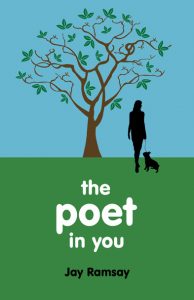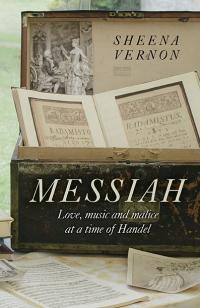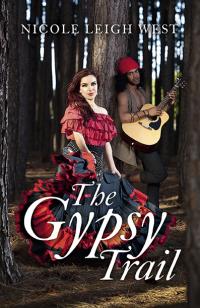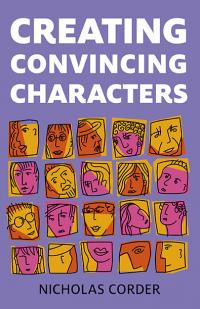
 Poetry is an impulse as old as the human spirit: as old as language itself. We
find it deep in time; in Isiah, Homer, St John, Corinthians (in the Bible), Dante, Shakespeare, Goethe – in writing and in names which have become myth and which have entered the stream of memory of
our heritage and of our essence. Poetry and the word ‘poet’ comes from the Greek poesis, meaning ‘one who makes’. The poet, in relationship to words, is a maker of a special kind. In Latin, the word
is vates meaning ‘seer’, diviner, or prophet. One who makes, and one who sees. These two meanings are at the root of what we are setting out to explore.
Poetry is an impulse as old as the human spirit: as old as language itself. We
find it deep in time; in Isiah, Homer, St John, Corinthians (in the Bible), Dante, Shakespeare, Goethe – in writing and in names which have become myth and which have entered the stream of memory of
our heritage and of our essence. Poetry and the word ‘poet’ comes from the Greek poesis, meaning ‘one who makes’. The poet, in relationship to words, is a maker of a special kind. In Latin, the word
is vates meaning ‘seer’, diviner, or prophet. One who makes, and one who sees. These two meanings are at the root of what we are setting out to explore.
The definition of poetry is something primary; it is something that precedes the rational intellect. Poetry comes from the spirit, from inspiration. Language is its tool. The mind is its mediator. Long before poetry was written down, and long before it began to be published as we know it, it was spoken aloud and learned by heart. In our own Celtic past, this was the function of the bard. In Anglo-Saxon Britain, the earliest English poems we have would have been spoken in many different and slightly varying versions before they reached manuscript form. This would include The Dream of the Rood, as well as an epic like Beowulf.
The mediaeval figure of the minstrel, and in 12th Century France the troubadour, continued this oral tradition, a tradition that is still alive today in Macedonia, the former Yugoslav country bordering Greece, and in Russia, where poems of immense length are still memorized.
In Victorian and Edwardian England, and even more recently, people in school were learning poems by heart or by rote. In connection with other and related cultures, poetry understood as something magical was deeply rooted in tribal feeling, and embodied in the shaman, the Bushman and the Aborigine, who by going into a state of receptive trance brought back messages as well as healing from spirit. Ancient priesthoods, such as the Ancient Egyptian, were imbued with ritual language – personified in the poet-pharaoh Akhnaton with his famous Hymn to the Aten (Sun), who transformed his country through its monotheistic inspiration.
Ezra Pound, TS Eliot’s close friend and collaborator, referred to poetry as the wise language of the tribe. We can see then that poetry, in its origin and essence, has clear preoccupations: the first is to speak truth, the second is to communicate that truth, and the third is to communicate it in language that sees, feels and dreams – in what ordinary or mechanical language is incapable of, in other words. This is fundamental.
Poets are the sensitive antennae of their culture: of the place and time where they live. David Gascoyne, who became known as a young poet inspired by Surrealism in the 1930s, calls the poet a ‘seismograph’ – someone who experiences things not only personally, but collectively. All art tells the story of its time – poetry, we can say, tells that story uniquely in words. The history of poetry in any culture is bound up with storytelling in this sense – and it is in this sense we can understand it as a form of cultural divination. Poetry divines the psyche of the culture it emerges in, and as poetry moves through time, the evolution of cultures in all their patterns of growth, decay, crisis, and rebirth.
Over time, poetry has emerged in different forms, each with different emphasis, named in periods (usually in retrospect). So during Renaissance England we have the ‘Silver’ court poets of the early 16th Century (the court of Henry VIII and Elizabeth I), the ‘Metaphysical’ poets of the mid-17th Century; then the ‘Augustan’ poets of the 18th Century, then the sudden brief revolutionary flowering of Romanticism after William Blake in the 1790s, before its slow dilution in Victorian times, and the disruptive reorientation of 19th Century poetry in both craft and content in ‘Modernism’ through Ezra Pound and TS Eliot in the early 20th Century.
The intellectual and academic status of poetry is something relatively recent, in so far as many people still feel the withdrawal of poetry as something accessible and comprehensible, reinforced in the way it has been taught. It is easy to forget that poetry was read as something seminal by large numbers of people long before our age of television, DVDs and popular fiction. Tennyson, the poet laureate of his time, was a best seller, and Byron’s Child Harold sold out in London as soon as it was printed.
Our age places an emphasis more on the visual imagination. Poetry is now more popular again than it has been for at least a century, even though publishers, especially the profit-driven ones, still mostly fail to recognize it.
Poetry has constantly been redefined across the breadth of human emotion and direction, and it has as constantly been defended, as far back as Sir Philip Sidney’s text of 1519. Others have followed, notably through Romanticism, with its strongly value-orientated agenda. Samuel Taylor Coleridge wrote: “The poet, described in ideal perfection, brings the whole soul of man into activity, with the subordination of its faculties to each other, according to their relative worth and dignity. He diffuses a tone and spirit of unity that blends and (as it were) fuses, each into each, by that synthetic and magical power to which we have exclusively appropriated the name of imagination.” – Biographia Literaria
Percy Bysshe Shelley was both more forthright and more simple in his Defence of Poetry in declaring poets to be the “unacknowledged legislators of mankind”, and in his political poems he speaks to that spirit in the English people, both in his Song to the Men of England (sung for many years in working men’s clubs), and in The Mask of Anarchy, written in rage after the terrible Peterloo massacre of 1819. There weren’t many who thanked him for telling the truth about oppression. Poetic truth isn’t any more comfortable than the teaching of the Gospels; and near the time of his untimely death (in 1822, aged only 29) Shelley numbered only 11 people he knew of who were actually reading his books.
In both Coleridge and Shelley’s statements, you can hear the ancient echo of the consciousness I began by naming. The difference is that, centuries later, we find the poet in effect ‘detribalized’, and the advent of the outsider, named by existentialist philosophers and writers. The relationship between poets and their society has always been tenuous and ambiguous because the best poets find themselves saying what their culture would rather not hear. Even in poets as relatively integrated into their society as John Dryden and in the 18th Century Alexander Pope, there is an awareness of this and an accompanying solitude. The satirical emphasis which was magnified in his contemporary Jonathan Swift, famous for his Gulliver’s Travels, drove Swift into madness. Swift’s Gulliver remains, surrounded by a horde of Lilliputians only too eager to tie him down. And there is a Gulliver in all of us.
In more recent times, alienation in society and its lack of ecological relationship has been reflected in maladjustment – and in the suicidal deaths of poets such as Sylvia Plath and Harry Fainlight. More and more people are awakening to the price of distance and disconnection through a sensitivity which is, at root, poetry itself: its wellspring and source. And now we find ourselves in a time when contact with that source has become imperative, and not only for those of us who are poets – but, once again, for all of us.
So what is poetry? Or rather, what can we mean by it? There is a connection with prose (especially in Modern poetry), but the difference, apart from an obvious intensity and density of language, reflects on the function of poetry as heart-speech. Poetry moves the heart where it reaches us and enters us, touching us at a level that is by definition deeper. All poetry aims to do this, whether it succeeds or not. But we know when it does – there is that distinct yet ineffable sense of our breath pausing, our eyes as if opened inwards, poised over the written form and movement among the lines, or where the poem ends, leaving us suddenly opened, quietly, blended with its feeling through each nuance of its word order and rhythm.
I remember vividly the first time I read Shelley’s Ode to the West Wind, walking down by a Surrey river, down the hill from school. It was in a little battered leather Victorian edition I’d picked up for pence. Not so much to read as to have, and I found myself opening it as I stood near the water. It was an autumn afternoon, and the leaves had turned russet, glowing, and there was a breeze along the river and in the trees above it, enough to suggest wind that the leaves whispered to, hushing the air and suggesting a sense of anticipation at the same time. My eyes moved into the poem, and immediately its rhythm held me, and as I read I was no longer aware of myself standing there, as the sound of the leaves blown by the wind began to move and the words glowed and caught fire, image after image drawing me through towards its ending. It was a moment out of time – we all have them – where the poem entered me and I entered it. It was a turning point, as I only later came to realize.
Something began in me that afternoon. I can say I was moved, but it was more than that. The feeling was of being called – of being addressed. I didn’t know what it was, and I put the book away and walked on, finding myself seeing the river and the trees above it and the leaves in a way I hadn’t before – or hadn’t consciously. I wasn’t looking at them, I was seeing them: I was seeing them alive. And they were calling too, and I was saying Yes – I say ‘I’, but it was also something else in me that was at the same time more familiar to me: utterly familiar, in fact. It was my own voice.
Poetry has to do with that unique voice we all have in us. It is not something we have generally been taught to believe, or give credence to. And this is something more than literature as we generally understand it. These are living words: not merely to be dissected or pinned like the wings of a butterfly. We all speak a generalized language, defined by nationality and influenced by conditioning we are all molded by; and beneath that, spoken or unspoken, is another voice.
A door opens – and poetry can open that door into our own heart and towards our own truth, whatever it may be, and whatever it may need to sound like.
A door opens – and a journey begins. It is a call from the depth of us to be who we are. And it is the voice which can say, or begin to say, ‘I am’. It is our birthright.
Poetry is a quest. At the same time, poetry is a response to the world – a response and an argument, both politically and spiritually, and particularly now the winds of change are blowing. We each need to have a vision of our time and what is happening in it and a sense of why it is happening. By going more deeply into ourselves we are able to go more fully into the world and our relationships in it, with friends and strangers, seeing that we are all part of it. We are part of Creation and we are co-creators.
We find ourselves different from the world and its current values, and that is the dynamic of poetry.
There is a cliché about poetry being ‘unworldly’ and this is the truth in it. We are in the world, but not of it (as St John says). You could call this the outer calling. It is a calling to wake up, and to begin to see a way beyond the wasteland of nationality, prejudice, denial, exploitation and pollution; seeing a way too beyond these things in us and the unimaginative language we speak. The poet inside us wakes and stirs, as the world stirs towards rebirth.
As George Trevelyan wrote in Magic Casements:
“In our over-masculinated society, in which logical analysing intellect is used to gain our ends, the more feminine intuitive faculties are often allowed to go dormant. But these are precisely the faculties that make poetry. True imagination can blend with the being within form, and re-discover the miraculous oneness of all life. The poet is one who can crystallize into words this profound experience of identity.”
We need space in order to write, and we need to learn to go inside and make a centre there. Then it can begin. There are as many ways to write a poem as there are people to write poems. The contemporary scene is a rich arena of diversity and difference. Poetry exists on many levels – light-hearted and serious, meditative and passionate. It is wrong to start out by thinking there must be a ‘right’ way to write a poem. Poems often know more about themselves than we do, and the important thing is to let them come as they want to – in other words, to let yourself speak. Revision and rewording, if necessary, can come later.
Another useful point to make here is to do with self-esteem (or the lack of it). Your poem, like your experience, need be no better or worse than anyone else’s – it is yours. Comparisons are often unhelpful and de-energizing. We need to focus on and trust what we are trying to say. It is not an exam, and there is no certificate. It’s much more challenging and more pleasurable than that – and there’s no one here to mark you down. There’s no competition, either – and no prizes. We are the prize – and it’s greater than anything we have so far imagined. And perhaps a little stranger, too.
Jay Ramsay is an acclaimed poet, teacher, workshop leader, performer and UKCP accredited psychosynthesis therapist currently working in private practice at the Lotus Foundation, London. He is also a popular poetry editor with his own page in the New Age spirituality magazines Kindred Spirit (1997-2004), Caduceus (since 2002) and More To Life (since 2006).
This article was first published in Writer's Wheel Magazine Issue 3.
Buy online: AMAZON US AMAZON UK INDIEBOUND
Categories:
0 comments on this article







